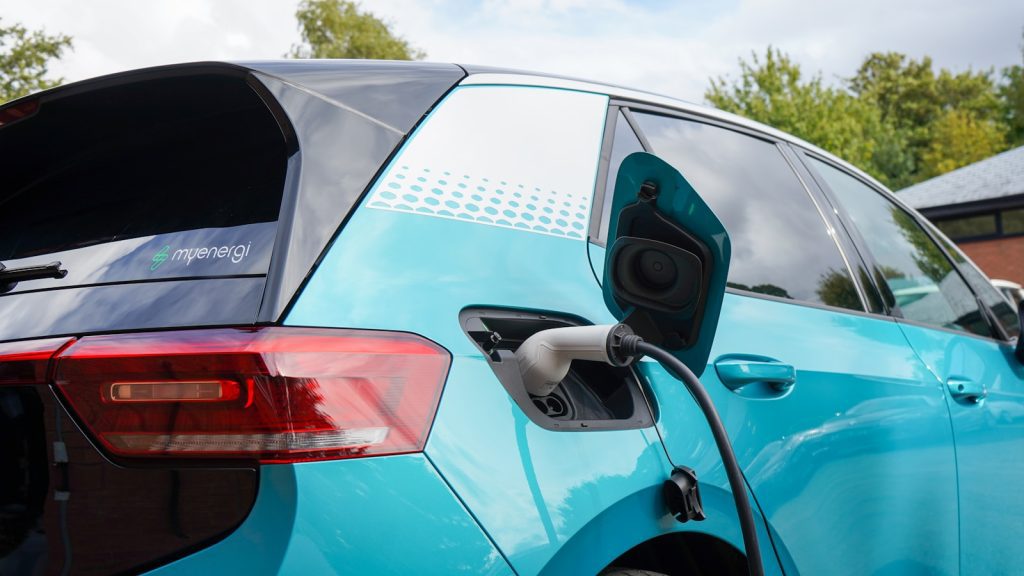In the past decade, electric cars (EVs) have shifted from a niche market to a significant force in the automotive industry. This transformation is fueled by a global push for sustainability, advancements in battery technology, and a growing consumer demand for greener transportation options. Today, we’re charging towards the future with electric cars leading the way, marking a pivotal change in how we think about and use personal transport.

The Electric Evolution: A Brief History
Electric cars are not a recent invention. In fact, they date back to the 19th century, but it wasn’t until the early 21st century that technology and environmental concerns aligned to propel EVs into the mainstream market. The launch of models like the Tesla Roadster, Nissan Leaf, and Chevrolet Volt marked the beginning of this new era. These cars demonstrated that EVs could offer the range, convenience, and performance consumers desired.
Why Electric? The Drive Towards Sustainability
The primary force behind the rise of electric cars is the global initiative to combat climate change. EVs offer a cleaner alternative to fossil fuel-powered vehicles, significantly reducing greenhouse gas emissions and pollution. As countries set ambitious carbon neutrality goals, electric cars are becoming an integral part of achieving these targets.
Moreover, the operational cost of electric vehicles is lower than that of their gasoline counterparts. Electricity is cheaper than gasoline in many parts of the world, and EVs are more efficient and require less maintenance. This economic advantage, combined with the environmental benefits, makes electric cars an attractive option for consumers.
Battery Technology: Powering the Future
The heart of an electric car is its battery, and the evolution of battery technology has been a game-changer for the industry. Lithium-ion batteries, with their high energy density and long life span, have become the standard for EVs. Innovations in battery design and materials have led to faster charging times, longer ranges, and reduced costs, addressing some of the initial consumer concerns about electric cars.
Researchers and manufacturers are continuously working on next-generation battery technologies, such as solid-state batteries, which promise even greater improvements. These advancements are crucial for the future growth of electric cars, making them more accessible and practical for everyday use.
Infrastructure Expansion: Building the Network
For electric cars to truly replace gasoline vehicles, a comprehensive charging infrastructure is essential. Governments and private companies around the world are investing heavily in expanding the network of public charging stations. Fast-charging stations, in particular, are becoming more widespread, allowing drivers to recharge their EVs in minutes rather than hours.
This expansion is not just about quantity but also accessibility and convenience. Efforts are being made to integrate charging stations into more locations, such as shopping centers, office buildings, and residential areas, making it easier for EV owners to charge their vehicles.
The Future is Electric: Trends and Innovations
The future of electric cars is not just about improving what we already have but also about reimagining what is possible. Autonomous driving technology, combined with electric powertrains, is set to revolutionize personal transport, offering safer, more efficient, and more convenient mobility solutions.
Another exciting trend is the diversification of the electric vehicle market. While early EVs were primarily compact cars, today’s market includes a wide range of vehicles, including SUVs, trucks, and luxury cars, catering to a broader audience.
Moreover, vehicle-to-grid (V2G) technology is emerging as a potential game-changer. This technology allows electric cars to communicate with the power grid, storing excess energy during low demand periods and feeding it back into the grid when demand is high. V2G could turn EVs into mobile energy storage units, playing a crucial role in stabilizing renewable energy sources.
Challenges and Solutions
Despite the progress, the electric car revolution faces challenges. Battery production and recycling, the availability of critical materials, and the environmental impact of electricity generation are issues that need to be addressed. However, solutions are being developed, such as more sustainable battery materials, improved recycling processes, and a shift towards renewable energy sources.
Conclusion
The rise of electric cars is an unstoppable force, driven by technological advancements, environmental concerns, and consumer demand. As we charge towards a greener future, electric vehicles stand at the forefront of this transformation, redefining what is possible in personal transportation. The journey is just beginning, and with continued innovation and commitment, electric cars will play a pivotal role in shaping a sustainable, efficient, and exciting future of mobility.
Nick is a dedicated auto writer with a deep passion for cars and a constantly evolving garage. As a true car enthusiast, he brings firsthand knowledge and excitement to his posts, offering readers a unique perspective on the latest trends and vehicles. Beyond his love for cars, Nick has a keen interest in real estate and enjoys indulging in clothes shopping. His weekends are often spent traveling the country in good company, exploring new places and making the most of his journey. Through his writing, Nick aims to share his love for the open road and inspire others to appreciate the thrill of driving.
